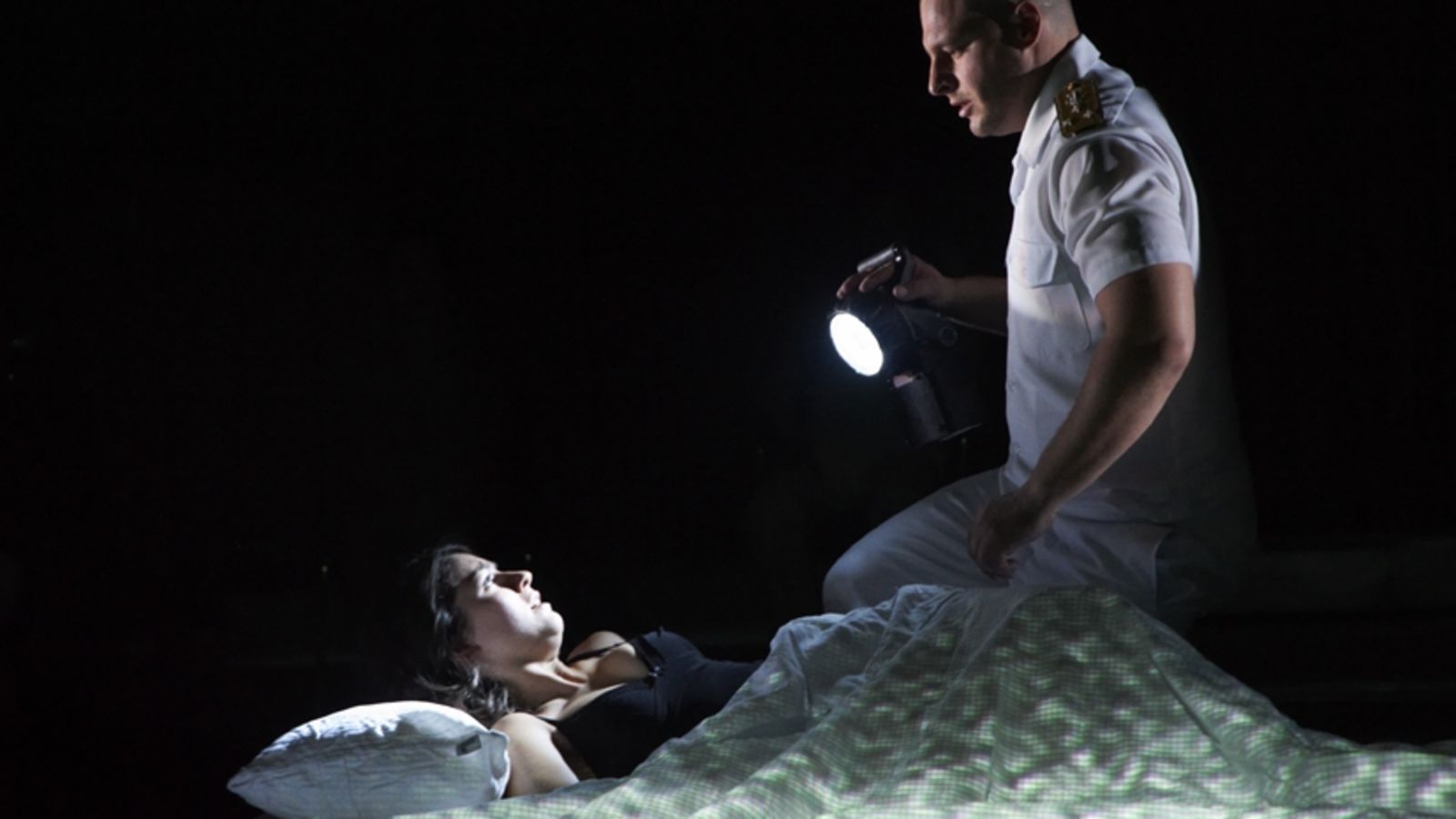
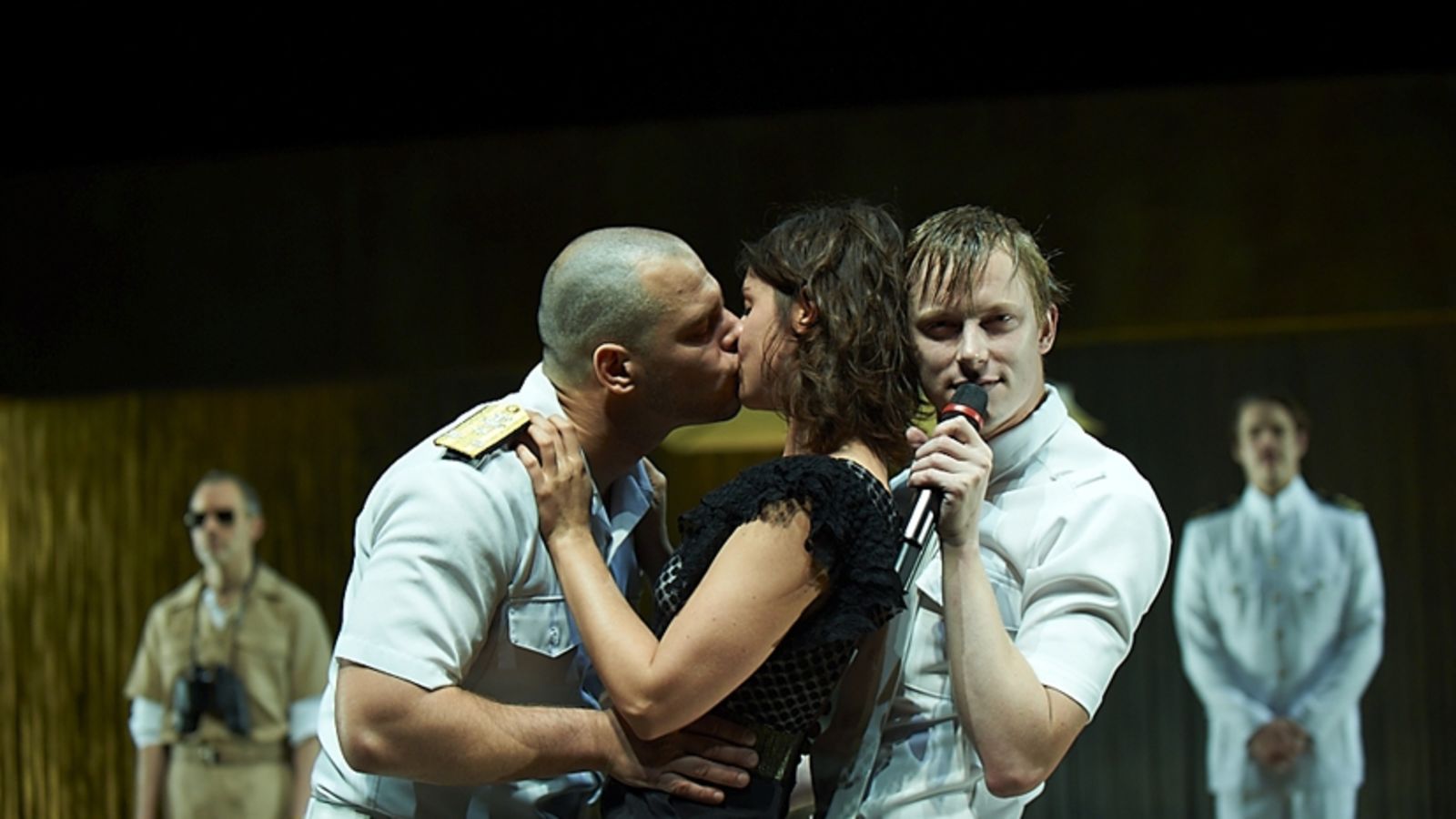
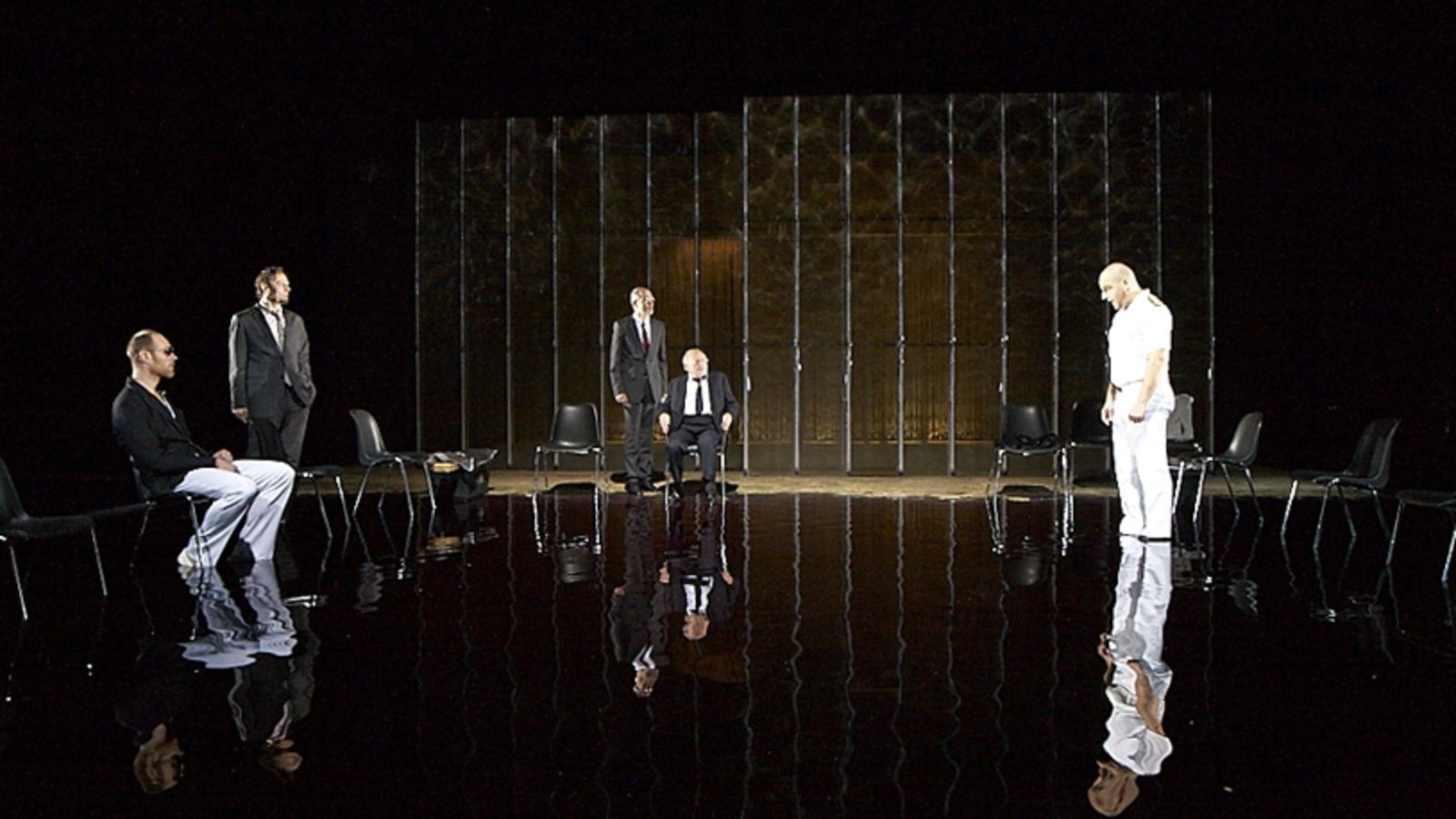
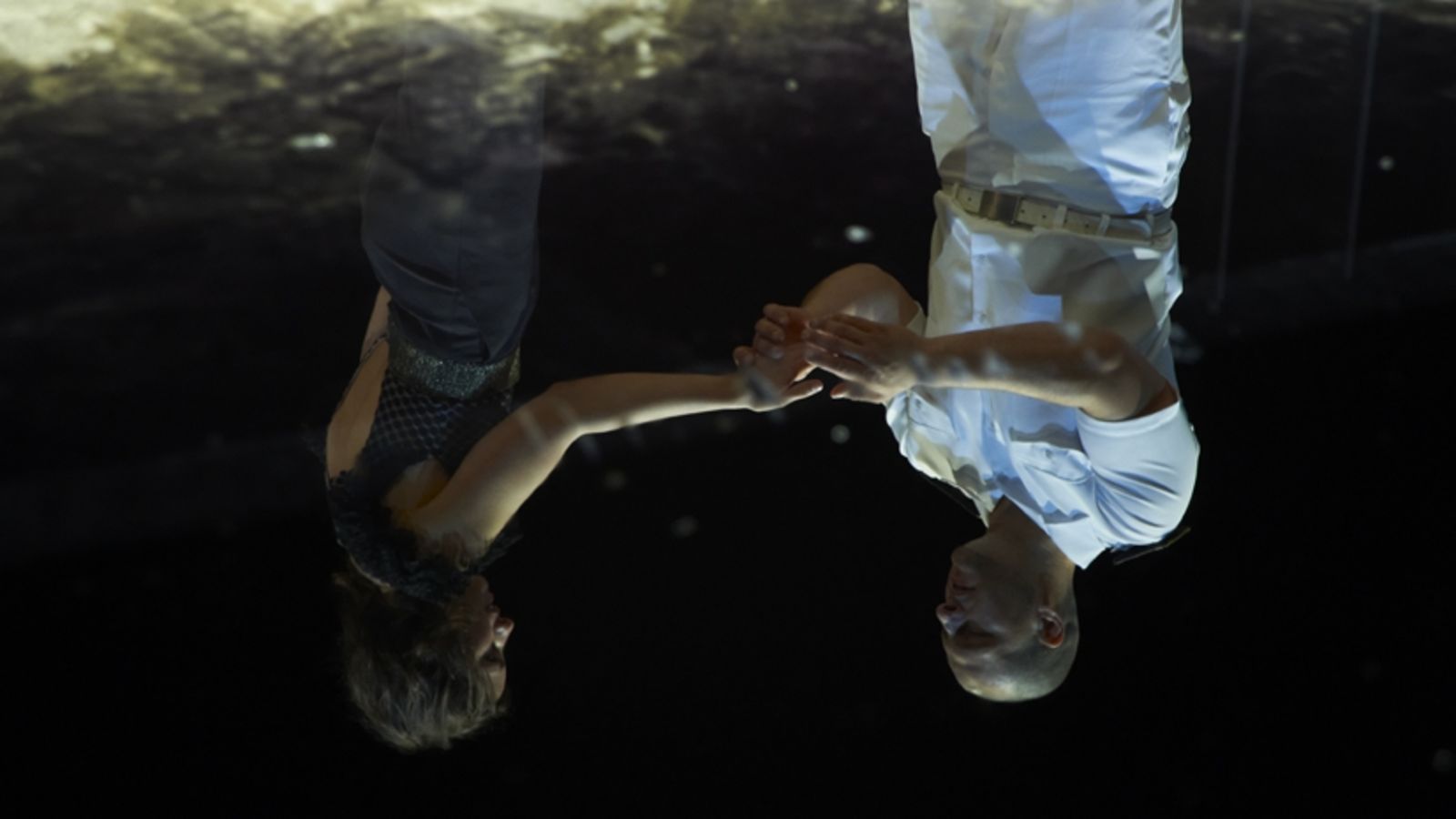
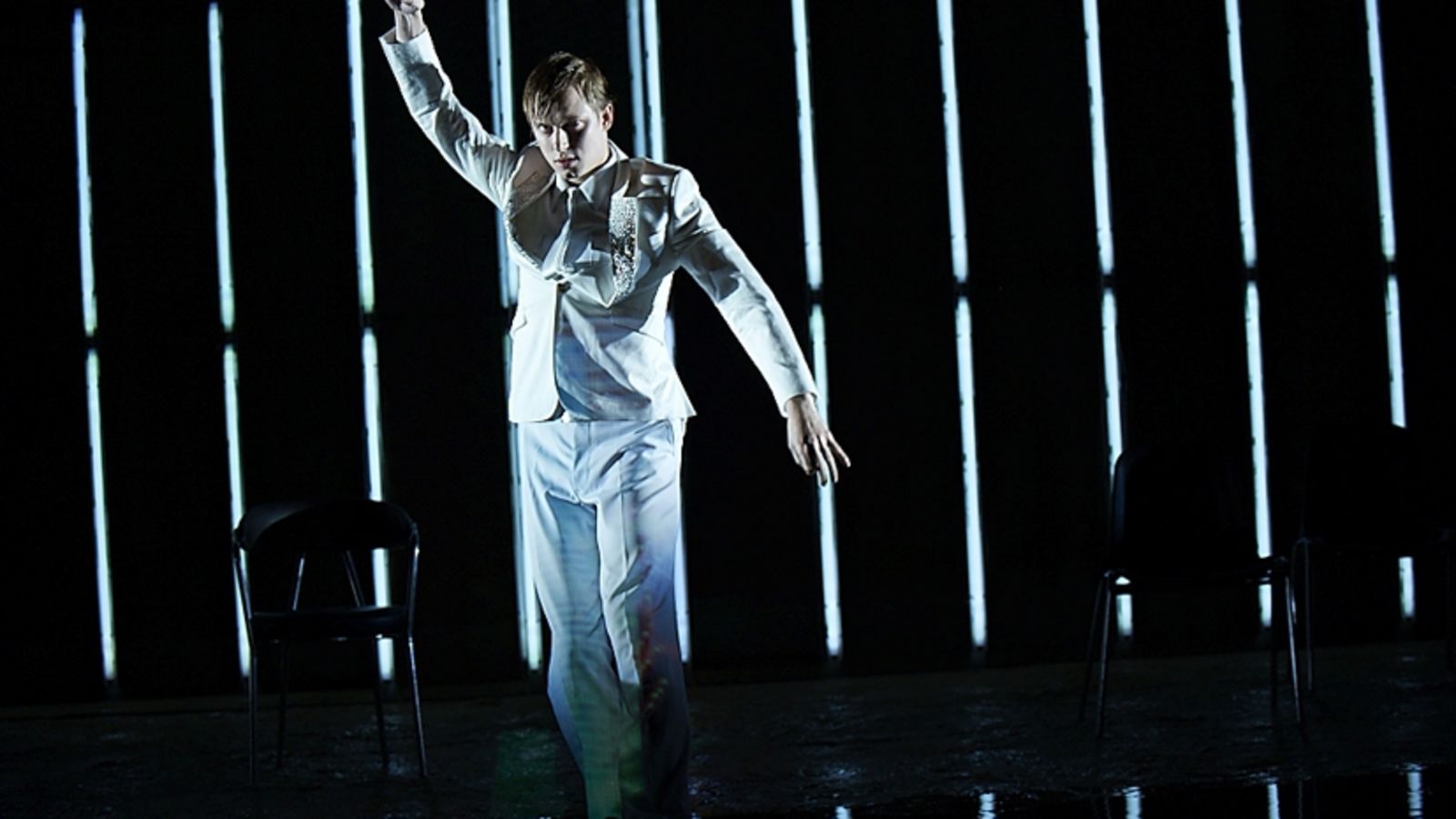
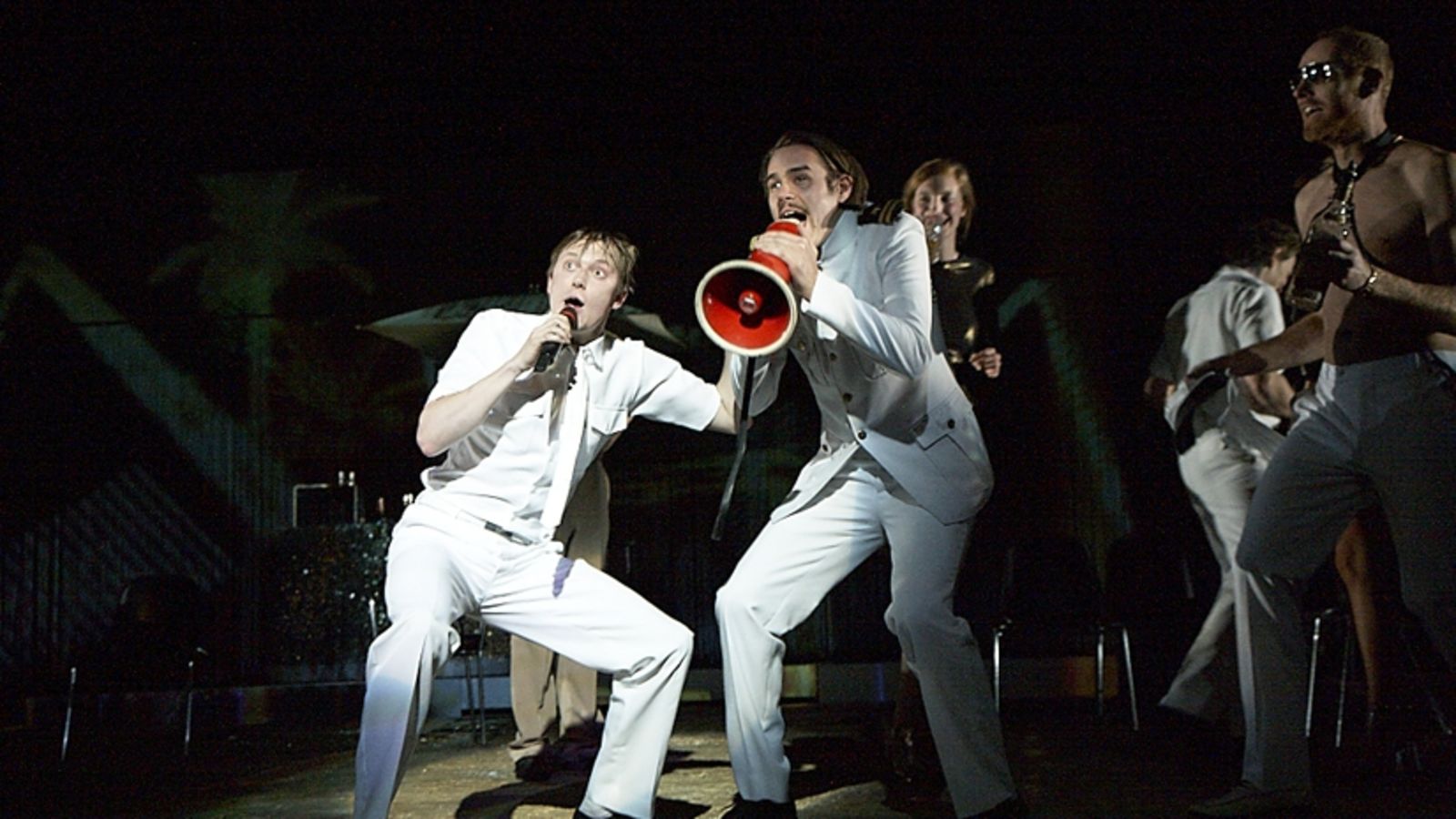
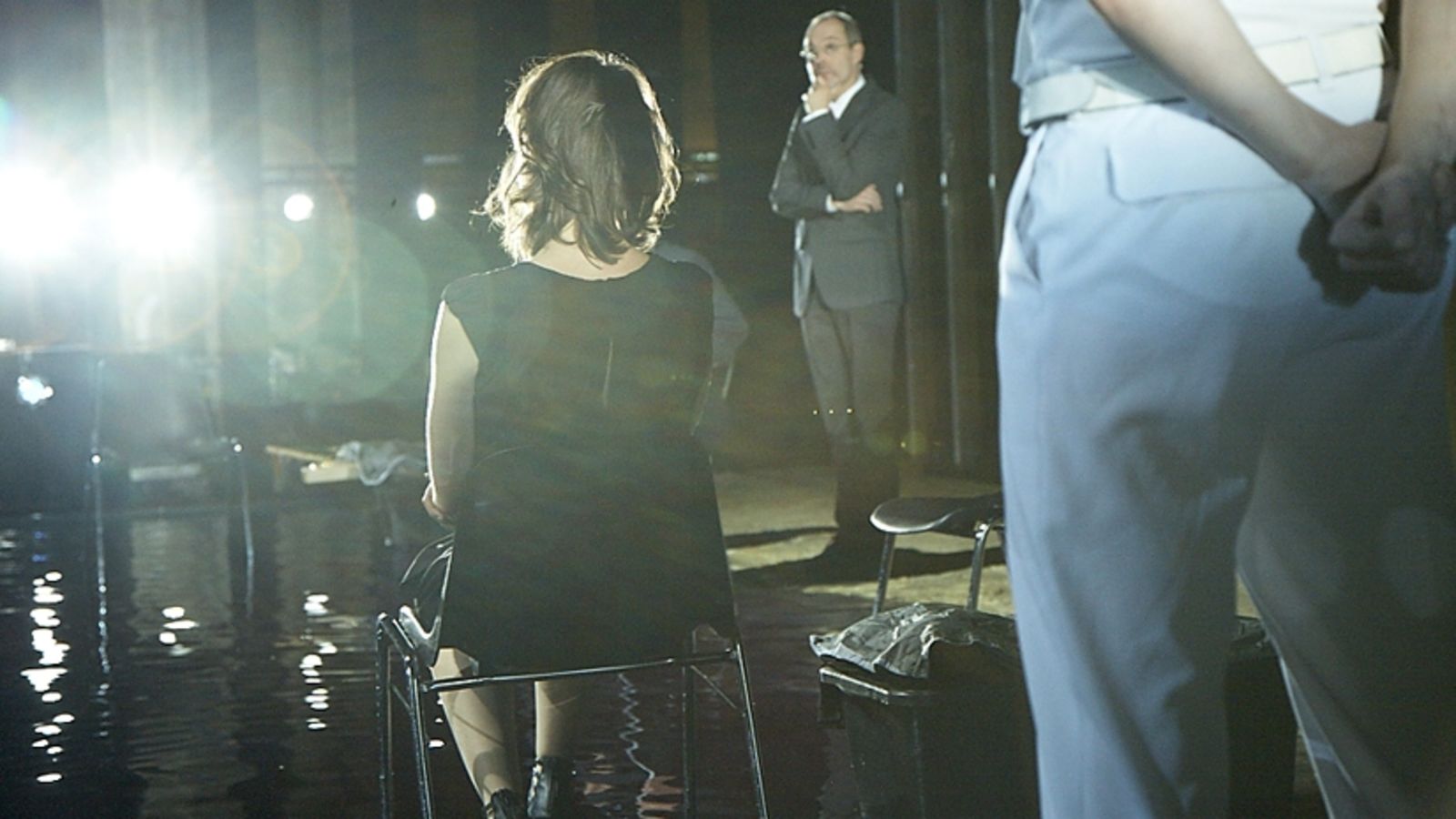
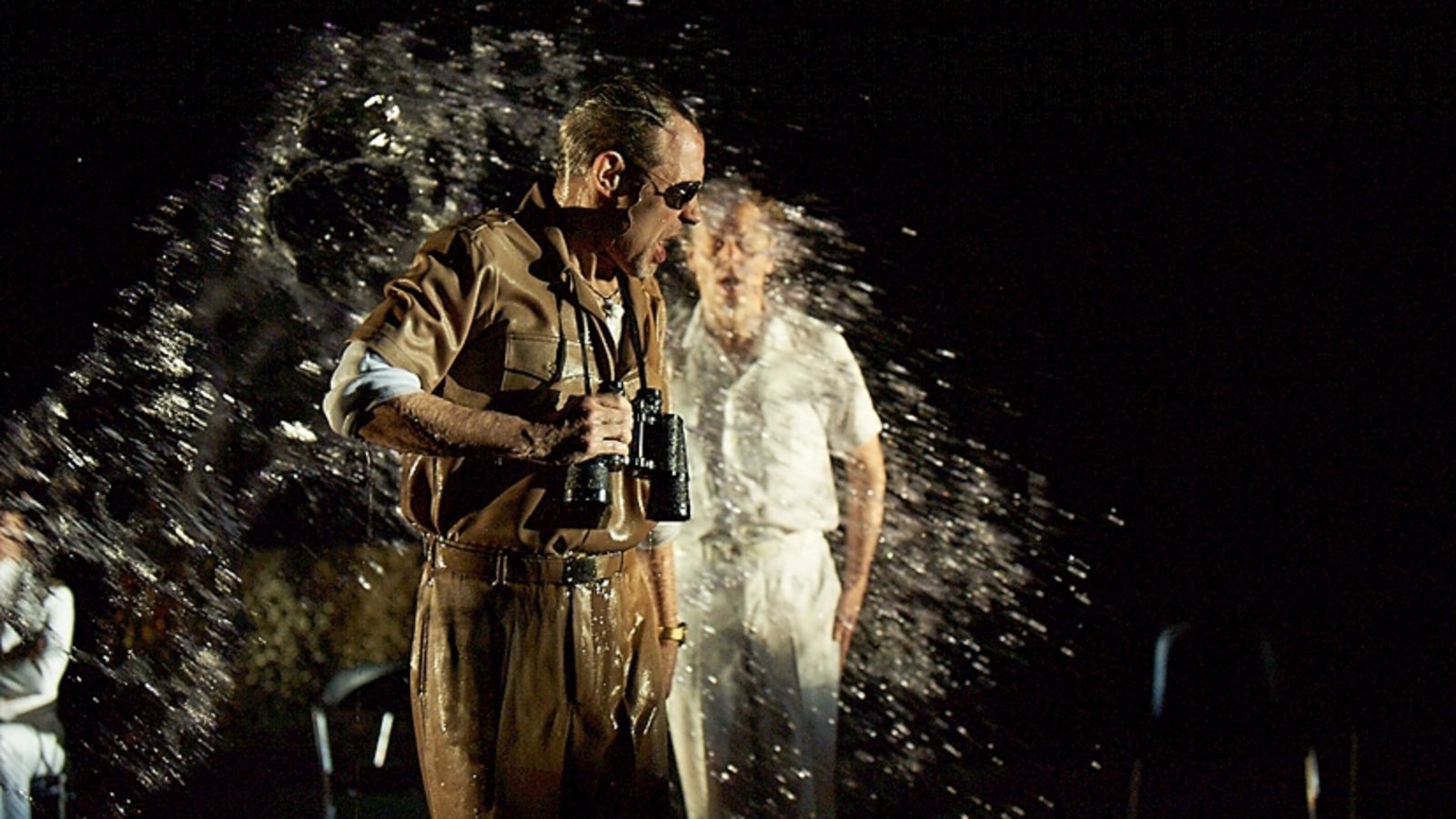
Othello
by William Shakespeare
Direction: Thomas Ostermeier
German translation: Marius von Mayenburg
A co-production of Schaubühne am Lehniner Platz
with Hellenic Festival 2010.
+++ Feedback from the French press, concerning the guest performance in Paris +++
»Le Monde«: www.lemonde.fr/culture/article...
»Les Echos«: www.lesechos.fr/culture-loisir...
»Evene«: www.evene.fr/culture/agenda/ot...
General Othello has passed his ensign Iago over for promotion and has named the inexperienced Cassio as his lieutenant instead. Iago decides to destroy Othello. He undermines his faith in his newly-contracted marriage with Desdemona and leads him into a whirlwind of self-destructive jealousy. To this end he skilfully uses the pressure of society, which is already troubled by the union of a black man with a white woman. The once cautious and rational Othello starts to lose his footing more and more often; his grasp on reality and identity becomes weak while Iago pushes him on to a mental breakdown, which is ultimately a catastrophe for the entire community.
Shakespeare’s 1604 play belongs, along with Hamlet and King Lear, to his great late tragedies, which contain particularly acute observations about human behaviour and psychological depth. Jealousy’s paranoid dynamics are here so effectively depicted that the character of Othello has become representative of the emotion. It is often lost from sight that Iago, the most active character in the play, is driven by envy, humiliation and a feeling of being short-changed. With »Othello«, Shakespeare has written a sophisticated play about male competitiveness and male careers, about the subtle strategies of social exclusion, as well as racism and sexuality. And although Shakespeare lays down many tracks, the play remains a vexing puzzle: Why does Desdemona walk into her own destruction with open eyes? Why does Iago destroy Othello? And why does Othello destroy himself?
Following »A Midsummer Night’s Dream« and »Hamlet«, »Othello« is Thomas Ostermeier's third engagement with Shakespeare, followed by »Measure for Measure« in the 2011/12 season.
Direction: Thomas Ostermeier
Stage design: Jan Pappelbaum
Costume design: Nina Wetzel
Music arrangements: Nils Ostendorf
Video: Sébastien Dupouey
Dramaturgy: Marius von Mayenburg
Light design: Erich Schneider
Fight choreography: René Lay
Brabantio, Lodovico, Herr (2. Act): Thomas Bading
Cassio: Tilman Strauß
Iago: Stefan Stern
Roderigo: Niels Bormann
Doge: Erhard Marggraf
Senator, Montano, Gratiano: Ulrich Hoppe
Desdemona: Eva Meckbach
Emilia: Luise Wolfram
Saxophon: Ben Abarbanel-Wolff
Orgel, Keyboard: Thomas Myland
Trompete: Nils Ostendorf
Schlagzeug: Max Weissenfeldt
Premiered on 9 October 2010
Tour Dates
Epidaurus (August 2010)
Barcelona (December 2010)
Paris (March2011)
Zagreb (September 2011)
Rennes (November 2011)
Toulouse (February 2012)

